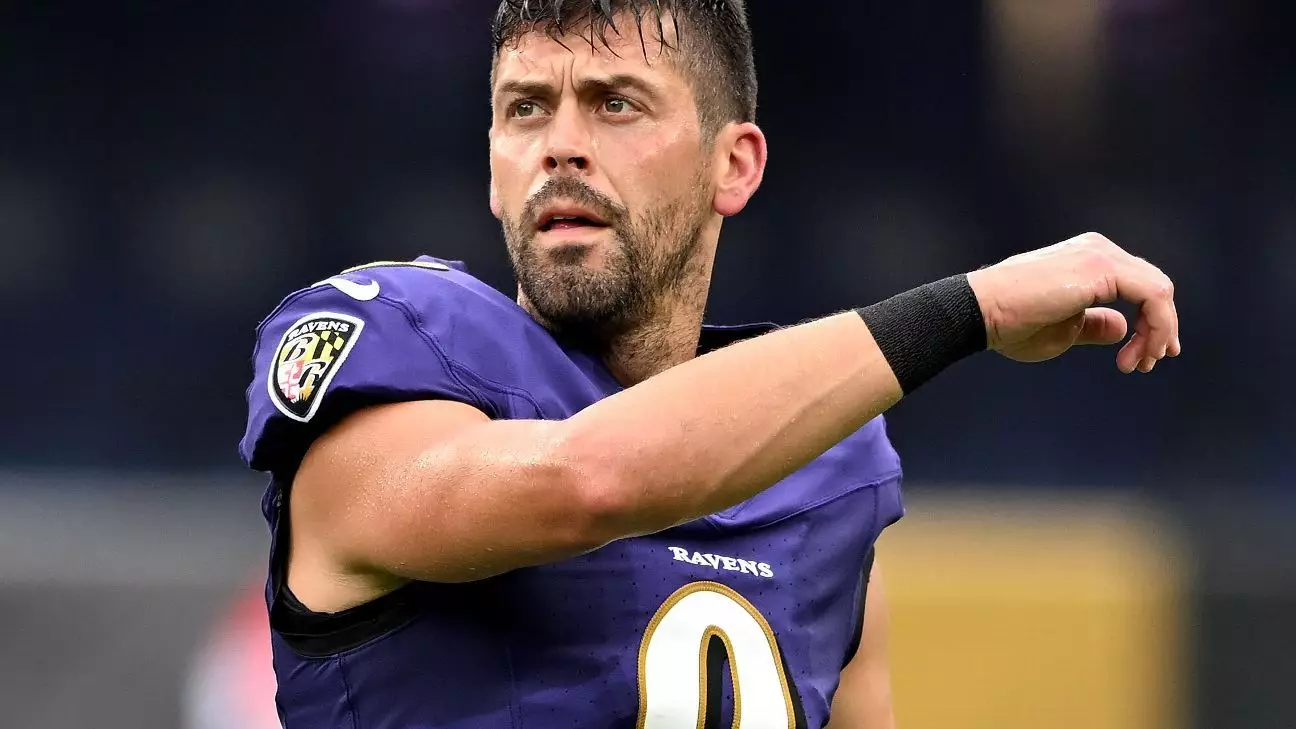The NFL’s recent announcement that Justin Tucker will be suspended for the first 10 weeks of the 2025 season for violating the league’s personal conduct policy cannot be lightly dismissed. Tucker, widely regarded as the most accurate kicker in NFL history, has seen his reputation unravel amid serious allegations of sexual misconduct spanning multiple years. This case, involving accusations from 16 massage therapists, is not just about one athlete’s personal failings but serves as a sobering reflection of how professional sports leagues grapple with accountability—often inadequately.
The Ravens’ decision to sever ties with Tucker only deepens the complexity. Though the move was necessary, it came almost grudgingly and well after allegations surfaced, exposing a recurring pattern in professional sports where clubs prioritize talent over ethical concerns until public and legal pressures become unavoidable. This reveals a systemic failure to protect vulnerable individuals, in this instance, massage therapists who work in close proximity to players yet often lack sufficient institutional support or safeguards.
The Insufficiency of the NFL’s Punishment
A 10-week suspension for allegations of sexual misconduct—spanning years and involving multiple victims—feels disproportionately lenient. The NFL potentially sending a message that even serious personal conduct violations will meet only minimal consequences is not just disappointing; it’s dangerous. One must question if this decision will deter future misconduct or simply enable repeat offenses under a guise of temporary reprimand.
It is telling that some of the complainants view the suspension as “bare minimum”—a phrase that should alarm any organization claiming to uphold integrity. The trauma these workers carry is lifelong, yet the consequences for the alleged perpetrator are framed almost as a brief inconvenience in a storied career. The law often moves slowly, but professional leagues wield the power to enact swift and decisive justice, and here they fell short.
Denial, Defensiveness, and the Culture of Silence
Justin Tucker’s outright denial and the vehement dismissal of allegations as “desperate tabloid fodder” highlight the troubling defensive posture many accused individuals adopt. Unfortunately, this instinctive reaction re-traumatizes victims and perpetuates a culture that discourages reporting misconduct. Instead of fostering transparency and accountability, it entrenches the power imbalance between athletes and those who serve behind the scenes.
The legal representatives for the massage therapists put it aptly: an apology and acknowledgment early on could have spared victims further harm. What we see instead is a refusal to engage with painful truths, a tactic that prioritizes reputation over responsibility. In a more just world, public figures embroiled in such controversies would recognize their influence and act with moral urgency rather than legalistic defiance.
The NFL’s Role and the Need for Cultural Change
The NFL prides itself on promoting sportsmanship and community values, yet its handling of ethical breaches often contradicts these principles. Justin Tucker’s suspension and release are necessary steps but insufficient signals of a deeper cultural reset the league desperately needs. This incident underscores how even widely admired veterans are not immune from scrutiny—and that reputations built on athletic prowess must be weighed against personal conduct.
The league should seize this as an opportunity to demonstrate meaningful support for victims and elevate standards of behavior. Merely enforcing suspensions risks reducing complex human trauma to a box checked on a disciplinary list. Instead, the NFL ought to spearhead educational campaigns, offer resources to marginalized staff, and institute transparent investigations that prioritize survivors’ dignity.
An Opportunity Lost and Lessons for the Future
While many will mourn the loss of a premier kicker, it is crucial to resist sentimental detachment from the real and raw consequences behind this story. Justice for victims can never be transactional or partial. If the NFL wishes to maintain public trust, it must show more than punitive action; it must demonstrate empathy, accountability, and a commitment to eradicating abuse in all forms.
The Tucker case could have been a clear moment for redemption—where acknowledging harm, offering reparations, and advocating change became the game plan. Instead, it feels like a routine punishment tucked neatly between preseason games, less a reckoning than a reluctant nod to public pressure.
The consequences of personal misconduct in professional sports demand greater seriousness. Until leagues like the NFL embrace this reality, the voices of those harmed will continue to struggle for the recognition they deserve while talented offenders skate by on minimal penalties. This is neither sustainable nor acceptable in a society that claims to value respect, safety, and equality.


Leave a Reply